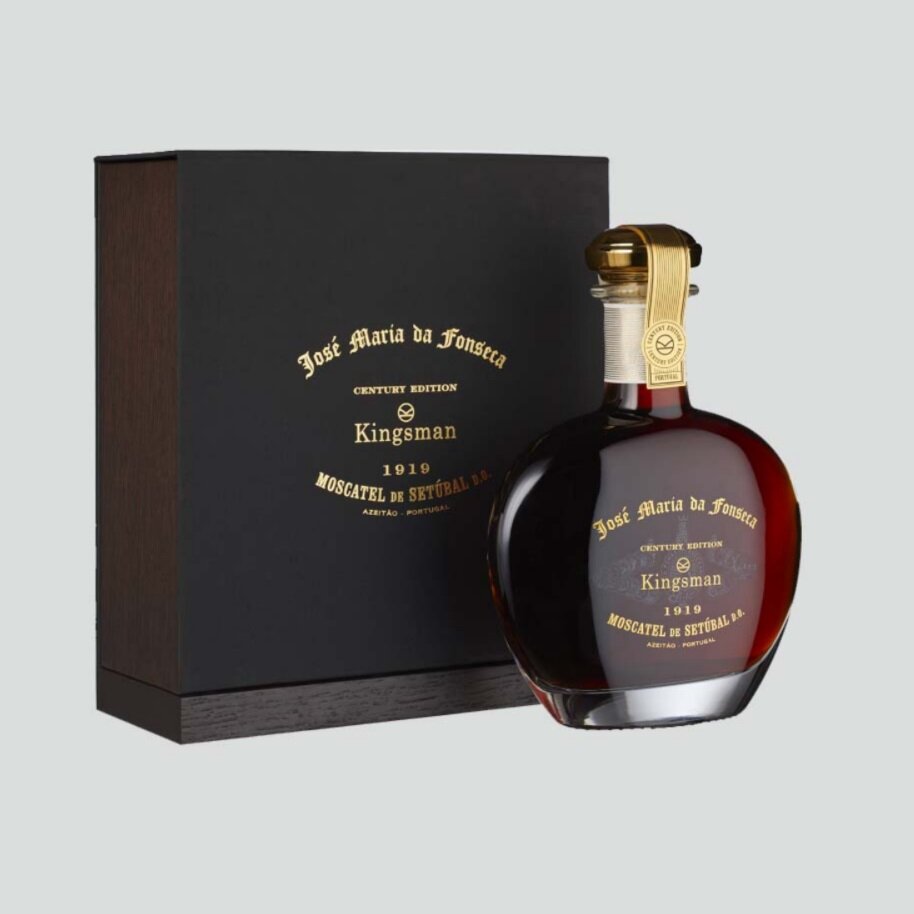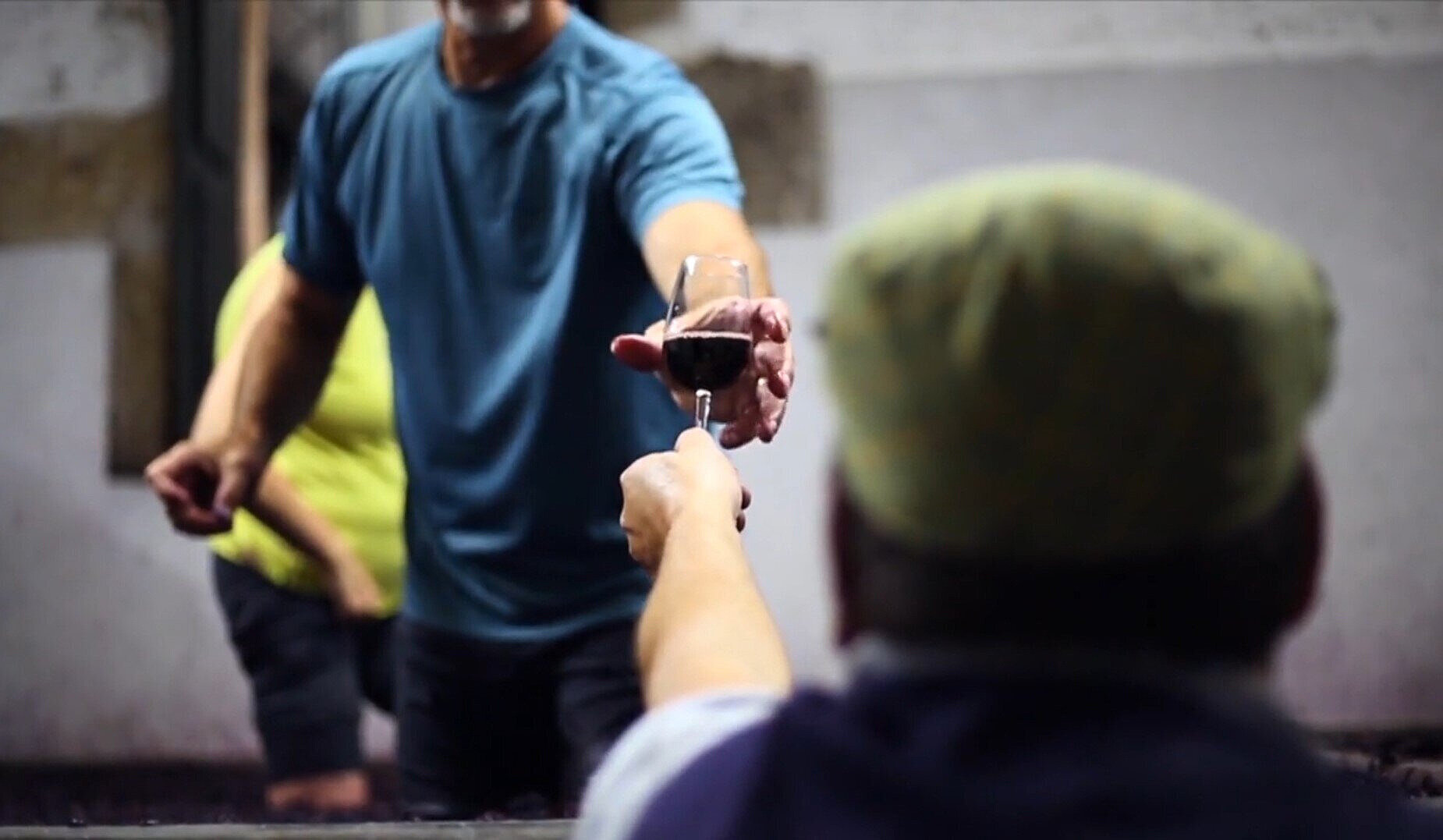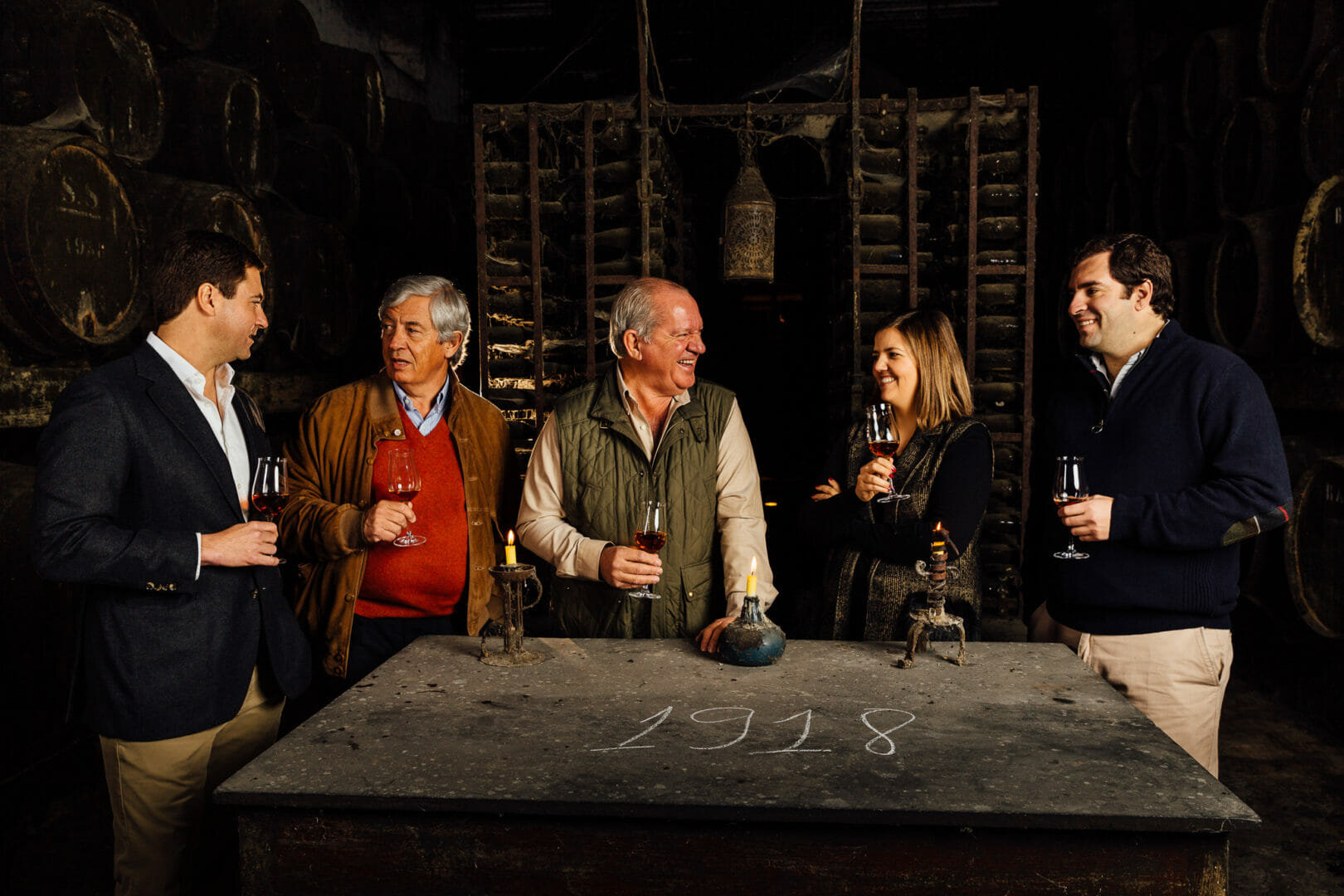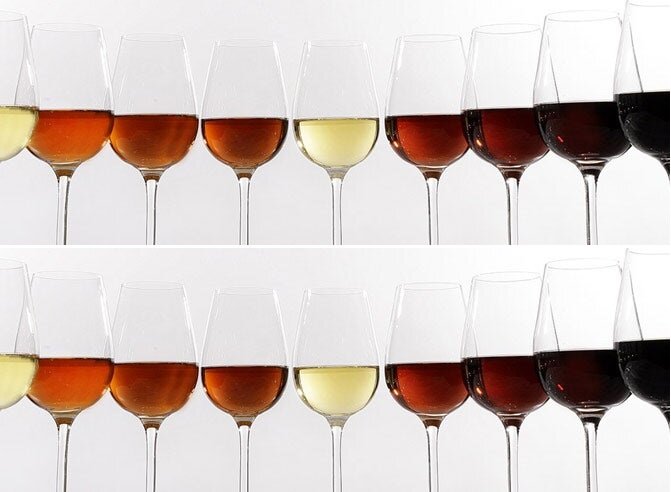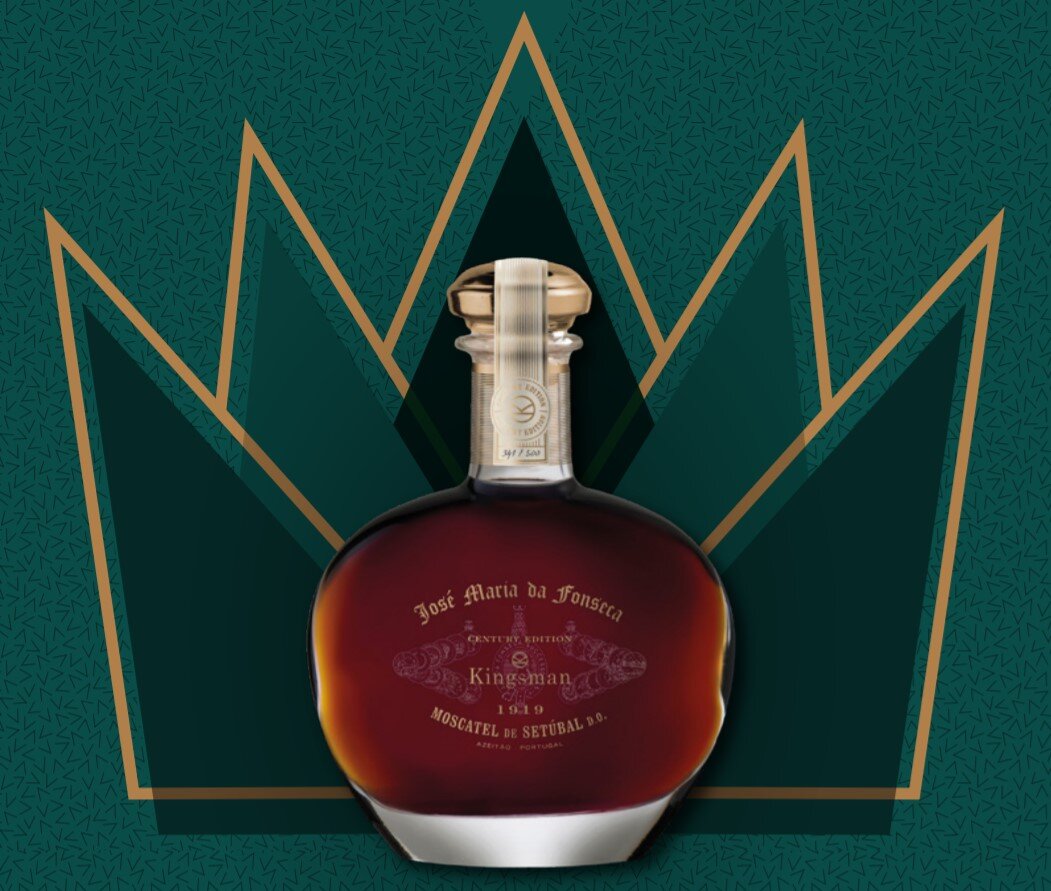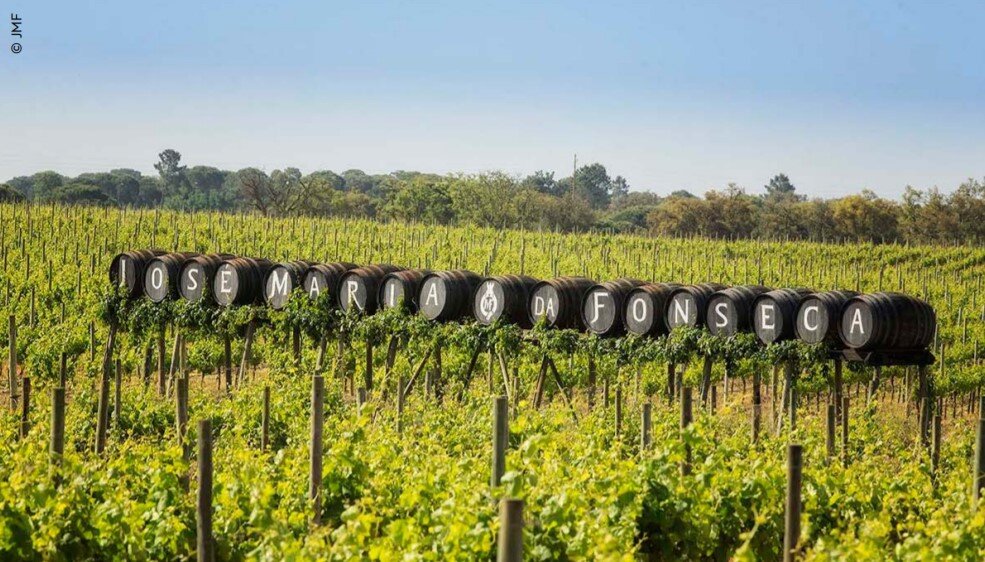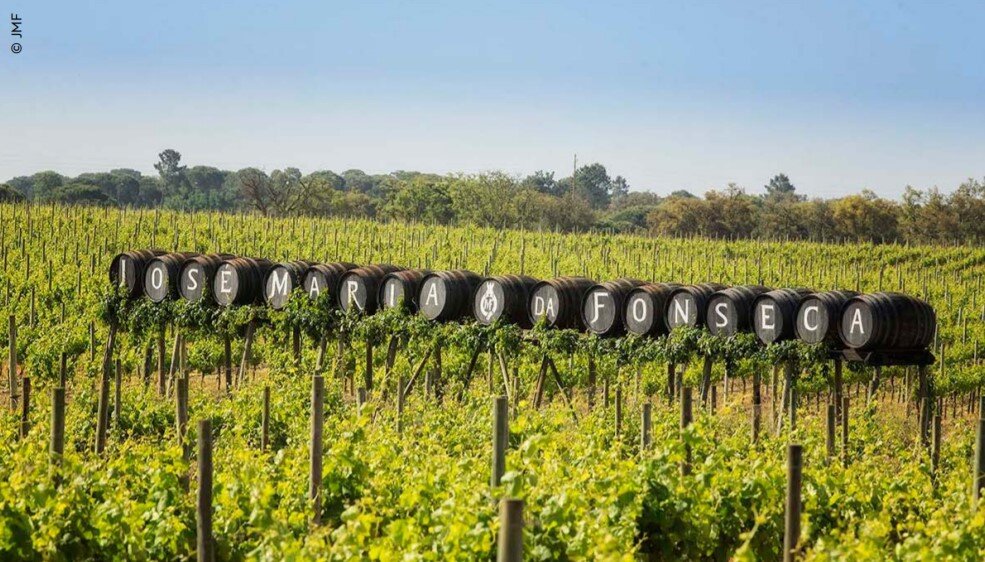

José Maria da Fonseca splendid vineyards in Azeitão, Portugal
News from Portugal: Lisbon is as beautiful and sunny as (almost) ever, warming up for the incoming spring. Too bad we’re going through a period of nearly quarantining, with schools and businesses closed and restaurants operating in one third of their capacity. But – we all have to do what it takes to tackle the coronavirus contagion.
Anyway: as I mentioned in my last post, I had a booked trip to Italy before the virus worries worsened. With the country sealed off, I instead had the opportunity of getting to know the José Maria da Fonseca facilities in the charming village of Azeitão, just a 40-minute drive from Lisbon.
Arguably one of the most cherished wine brands in Portugal, this family company – established in 1834 and being run by its 6th and 7th generations! — produces one of our most successful initial bottle offerings (IBOs): the 1911 Moscatel de Setúbal, which our Chief Wine Officer Julien Miquel lauded as a rare tasting experience.
I honestly can’t imagine how tasting such an antique fine wine feels. Understanding — from just the aroma and one sip — the details of its ageing, the influence of the soil and the luminosity on the Muscat grapes and even the techniques applied for its conservation seems like something unattainable right now. Wine critics and enthusiasts, I’ll leave that one for you!
What I find fantastic is how much effort and passion are put into developing such delicate wines and preserving them for the new generations to come, only getting better and better. It’s an amusement park for collectors.
No matter how many years have passed: 10, 25, 50… even more than a hundred. A fine vintage will stand the test of time and will grow. In terms of quality and also market value, because it becomes rarer as its bottles are consumed through the years. And — if climate change allows us to! — new outstanding vintages like the 1911 Moscatel de Setúbal will follow over and over again, going through similar processes of appreciation.
***
This is something extremely rare. If you allow me to make a loose comparison, we can think of its contrast with a strong, century-old company. Let’s say, for instance, Boeing.
The commercial aviation giant has been repeatedly suffering significant market slumps. The fallout from the failures with the disgraced 737 Max was aggravated by the coronavirus fears, with investors very concerned about a lower demand for commercial jets. Boeing shares were plunging more than 20% this Monday, after already having helped to send the Dow into a bear market just days before. The dive sums up to around 50% year to date.


Boeing Co. shares on March 16, 2020, NYSE
The stock market is prone to surprising ups and downs. No matter if you hold a well-known company, it’s not an exact science.
On the one hand, you can buy some Boeing shares today and, depending on what happens on the future, they could significantly rise or drop in the coming years.
On the other hand, a hard asset — which can also suffer from fluctuations, let’s be clear — such as a fine vintage is prone to only gain value with time, due to its increasing rareness and rising quality. If I buy a 1911 Moscatel de Setúbal today, it might be that, in some 50 years, it’ll be worth a hundred times more depending on the currency at that time or if someone is willing to bid that much.
***
Oh. Want to hear more on José Maria da Fonseca? Don’t forget to check the article we wrote about them some months back and watch this beautiful overview below.

